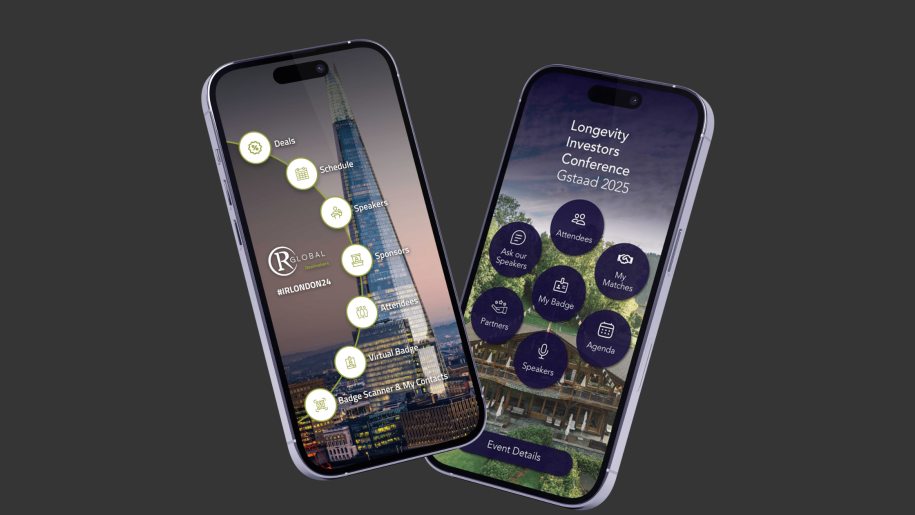Event apps in 2024: Are they the game-changer that your event needs?
In the ever-changing world of event planning, staying ahead of the curve is crucial.
Events, with their multitude of activities, talks, and seminars, can be overwhelming for visitors. Traditionally, attendees relied on printed maps and schedules, but as we navigate through 2024, these have largely been replaced by custom-designed event apps.
The big question is – how effective are these apps?
If executed well, event apps can greatly benefit both organisers and visitors. Conversely, poorly designed apps can be a waste of time and money, leaving a negative impression.
The Value Proposition of Event Apps
Eco-Friendly and Cost-Effective
By reducing paper usage, event apps help create a “green” event while being cost-effective, eliminating the need for printed programs, tickets, and surveys. The Green Meetings Industry Council reported that events using apps reduced paper consumption by 70%, saving an average of $15,000 per event.
Enhanced Attendee Engagement
Features like personalised schedules, live polls, and interactive maps to keep participants engaged before, during, and after the event. A 2024 survey by EventMB revealed that 78% of event organisers saw increased attendee engagement when using an event app.
Streamlined Communication
Organisers can now send real-time updates, notifications, and reminders directly to attendees’ smartphones, improving communication efficiency. According to Event Tech Live, 82% of event planners noted significant improvements in communication thanks to event apps.
Data-Driven Decision Making
Event analytics on attendee behaviour, session popularity, and engagement levels, aid in better planning for future events. Moreover, detailed analytics from the app can enhance sales pitches to potential sponsors and exhibitors, turning visitor data into a valuable asset. Meeting Professionals International (MPI) says that, in 2024, 76% of event organisers used data from event apps to enhance their planning process.
Networking Opportunities
Networking is a key component of most events, but connecting with the right people can be challenging, especially at larger gatherings. Event apps can streamline networking through features like profile-based matchmaking, and in-app messaging, improving networking experiences. Event Tech Innovation Survey indicated that 65% of attendees reported more successful networking when using an event app, as per the Event Tech Innovation Survey.
Increased Sponsorship Value
Event apps provide unique opportunities for sponsors to connect with attendees through ads, push notifications, and branded content, enhancing sponsor satisfaction and ROI. In 2024, 60% of sponsors reported higher satisfaction and ROI when participating in events that utilized an app, according to Sponsorship Today.
Common Challenges with Event Apps
Initial Setup and Costs
Developing or purchasing an event app can be costly and time-consuming, requiring a significant initial investment.
Consideration: Smaller events or those with limited budgets may find it challenging to justify the expense.
Technical Issues
Technical mishaps such as app crashes, connectivity issues, and compatibility problems can disrupt the user experience and hinder engagement.
Consideration: Ensuring robust technical support and thorough testing can mitigate these risks.
Learning Curve for Users
Attendees unfamiliar with the app may face a learning curve, potentially leading to frustration and decreased satisfaction.
Consideration: Providing clear instructions and support can help ease the transition.
Data Privacy Concerns
Collecting and storing attendee data raises privacy concerns and requires strict compliance with data protection regulations.
Consideration: Implementing strong data security measures and transparent privacy policies is essential.
Dependence on Technology
Over-reliance on technology can be a drawback if there are failures or outages, leaving attendees without essential information.
Consideration: Having a contingency plan and backup communication methods can alleviate potential disruptions.
Conclusion: Strategic Planning for Successful Event Apps
Event apps can significantly enhance the experience for both organisers and attendees, provided they are thoughtfully designed and aligned with clear objectives. They can save time and money, bolster brand image, and facilitate networking and revenue generation. However, the decision to develop an app should be based on a thorough understanding of your event’s goals and audience needs. By starting with the “why” and carefully planning the app’s design and functionality, you can create a tool that adds real value to your event.
Adopting an event app can transform the way you plan and execute events, setting the standard for the future. However, careful planning, investment, and support are crucial to ensure a smooth and successful implementation. Whether you’re an event organiser or an attendee, understanding the full scope of what an event app offers will help you maximise its benefits while minimising any potential challenges.
